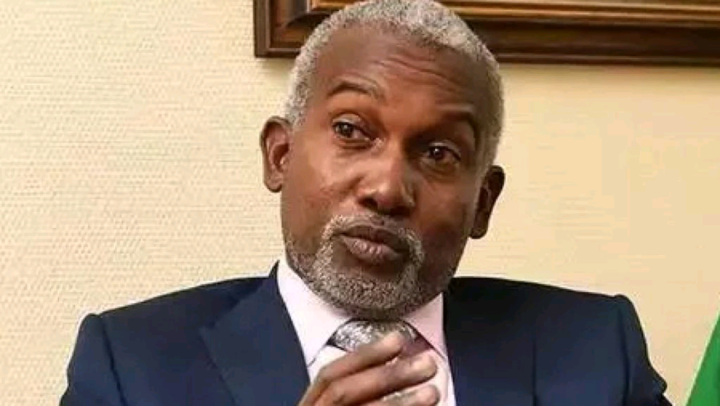The Federal Government of Nigeria has officially stated that it cannot accept Venezuelan deportees being repatriated from the United States, citing complex international visa restrictions and rising geopolitical tension surrounding BRICS-related diplomatic alignments. The announcement was made through a statement by the Ministry of Foreign Affairs on Thursday, amid growing international attention on U.S. immigration enforcement and its impact on foreign nationals.
According to the statement, Nigeria’s refusal stems from legal and diplomatic constraints that prevent it from serving as a transit or proxy destination for non-Nigerian deportees. The government emphasized that it has no bilateral or multilateral agreement with either Venezuela or the United States that mandates Nigeria to receive or accommodate deported Venezuelan nationals.

“The Nigerian government has no legal or diplomatic responsibility to receive foreign nationals deported by other countries, especially individuals with no direct ties to Nigeria,” the statement read. “We are not a party to any agreement—formal or informal—that permits such third-country deportations, and we cannot compromise our immigration sovereignty under any circumstance.”
This development comes amid reports that the United States has been exploring alternative deportation routes for undocumented migrants from Venezuela and other Latin American countries who face deportation but lack a direct repatriation channel due to severed diplomatic ties or security concerns in their home countries.
A U.S. immigration official, speaking to international media earlier in the week, mentioned that Washington had been in quiet talks with some African and Asian nations to help process or temporarily house deportees from regions where diplomatic engagement is complicated. However, the Nigerian government swiftly distanced itself from such arrangements, describing them as unacceptable and inconsistent with its foreign policy principles.
Sources within the Ministry of Interior confirmed that there had been unofficial approaches regarding potential cooperation on immigration enforcement, particularly in the context of U.S. efforts to manage migration flows and forge global partnerships. However, these proposals were firmly rejected after a thorough review by national security and immigration authorities.
Nigeria’s firm stance also appears to be shaped by the broader geopolitical climate. Venezuela, a founding member of the BRICS+ expansion initiative, has recently deepened its alliances with Russia, China, and other nations in the BRICS bloc, a group widely seen as a counterbalance to U.S.-led Western influence in global politics. Nigeria, while maintaining strategic relationships with both the West and China, has remained cautious about being drawn into diplomatic confrontations between rival global blocs.
“We must not allow ourselves to be entangled in the complex web of global power politics,” said a senior diplomat familiar with the matter. “Nigeria’s foreign policy has always prioritized neutrality, sovereignty, and non-alignment. Accepting deportees from a BRICS-aligned nation under U.S. pressure would be diplomatically sensitive and potentially damaging.”
Visa restrictions imposed by both the United States and some BRICS nations have further complicated international movement and collaboration on immigration matters. Venezuela has faced significant challenges repatriating its citizens due to strained ties with Washington, which has maintained sanctions and reduced diplomatic engagement with Caracas in recent years.
Back home in Nigeria, civil society groups and policy analysts have largely supported the federal government’s decision, describing it as a necessary defense of national sovereignty and legal integrity.
“Nigeria cannot become a dumping ground for other countries’ immigration problems,” said Dr. Samson Eze, a Lagos-based international relations expert. “We must safeguard our borders and immigration processes and avoid being exploited as a geopolitical tool.”
Meanwhile, human rights organizations have called for humane treatment of all migrants, including Venezuelan deportees, urging the United States to find lawful and dignified solutions that do not involve offloading migrants on third-party nations with no connection to the individuals concerned.
The U.S. Department of Homeland Security (DHS) has yet to officially respond to Nigeria’s position, but analysts believe that the issue could raise tensions in diplomatic circles, especially as Washington tries to rally international support for its shifting immigration and foreign policy priorities.
In the midst of this controversy, Nigeria continues to navigate its own immigration challenges, including managing the inflow of refugees from neighboring countries, dealing with irregular migration, and protecting its citizens abroad from unlawful deportation and mistreatment.
As international pressure mounts and global migration dynamics evolve, Nigeria’s latest refusal is being viewed as a significant statement of its commitment to immigration sovereignty and non-alignment in an increasingly polarized world.
Support InfoStride News' Credible Journalism: Only credible journalism can guarantee a fair, accountable and transparent society, including democracy and government. It involves a lot of efforts and money. We need your support. Click here to Donate
